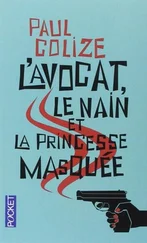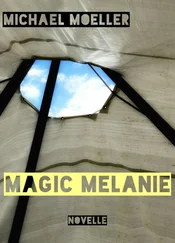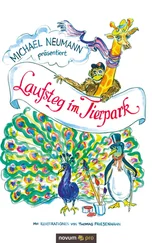‘I give thanks to the Lord, I thank the Lord my God,’ according to the deaconess’s translation.
Then she dropped the microphone, slumped forward moaning loudly and would have hurtled over the pulpit rail had it not been for the black man who grabbed hold of her and hung on.
The verger was the quickest of all to react. He raced forward, skipped up the stairs, folded the deaconess’s bony arm round his bull-like neck and levered her down into the aisle.
‘Malaria,’ she gasped. Her skin had turned deep yellow, and she was on the point of collapse. Several members of the church council hastened forward and helped to carry her out of church and into a car that sped off in the direction of the cottage hospital.
The rest of the congregation and the black man were still there. They were all somewhat confused. Tawe stepped forward to assert his authority, but the black man was still dominant in the pulpit. He’d travelled halfway across the globe, and so he ought to be able to cope with this. In the name of God.
He thought for a moment, then switched from Bantu to Swahili. Many millions speak Swahili, including many Africans up and down their continent. Unfortunately, not many people in Pajala are acquainted with it. He was confronted by a mass of blank faces. He changed language once again, and tried Creole. His dialect was so specialised that not even the local French teacher could work out what he was saying. He was getting a little heated, and tried a few sentences in Arabic. Then, in desperation, a couple of phrases in Flemish that he’d picked up while in Belgium on ecumenical business.
But contact was zero. Nobody could understand a word he said. In remote areas like this, you had to speak Swedish or Finnish.
He was desperate by now. Tried one final language. Bellowed it out so that it rebounded from the organ loft, roused an old lady from her slumbers, scared stiff a small child that burst out crying, and set the pages of the lectern Bible a-flutter.
Then Niila stood up in the row in front of me and answered him back.
A deathly silence descended on the whole church. Every single member of the congregation turned round and glared at this impertinent little brat. The black man focused on the little lad in the midst of the congregation before him, just as Niila was being given a good thump by Isak. The African gentleman raised his hand to indicate a halt to any such action. The palm of his hand was remarkably white. Isak felt the eyes boring into him, and let go of his son.
‘Ĉu vi komprenas kion mi diras?’ bellowed the black man.
‘Mi komprenas ĉion,’ replied Niila.
‘Venu ĉi tien, mia knabo. Venu ĉi tien al mi.’
Niila edged his way hesitantly along the pew and into the aisle. For a moment it looked as if he might run away. The African beckoned to him with the pale palm of his hand. All eyes were on Niila as he took a few trembling steps. Shoulders hunched, he tiptoed towards the pulpit, a bashful little boy with an awful haircut. The black man helped the slip of a lad up the stairs. Niila could barely manage to peer over the edge of the pulpit, but the African lifted him up in his strong arms. Held him like he would a little lamb. In a quaking voice, he resumed his sermon:
‘Dio nia, kiu aŭskultas niajn preĝojn…’
‘Oh Lord our God, who hears our prayers,’ said Niila without the slightest hesitation. ‘Today Thou hast sent unto us a boy. We thank Thee, oh Lord, we give unto Thee our thanks.’
Niila understood every word the black man said. The citizens of Pajala were thunderstruck, the boy translated the whole of the sermon as it was delivered. The faces of Niila’s parents and those of his brothers and sisters were etched with dismay, they sat in their pew like statues of stone. They were in shock, they realised they were witnessing a wondrous act of God. Many of the congregation burst into tears from sheer rapture, everyone was deeply moved. Whispers of jubilation spread throughout the chapel until the whole place was buzzing. The hand of God! A miracle!
As for me, I couldn’t understand what was happening. How had the black man learnt our secret language? For that was what they were speaking, him and Niila.
News of the incident spread rapidly, and not just in ecclesiastical circles. For a long time afterwards there were calls from newspapers and the television people, wanting to interview the lad, but Isak forbade it.
I didn’t see Niila again until several days later. He sneaked into our kitchen one afternoon, still looking staggered. Mum gave us each a sandwich and we sat there chewing. Niila occasionally pricked up his ears in that awkward way he had.
The radio was mumbling away in the background, as usual. I suddenly had a strange suspicion, and turned up the volume.
‘Ĝis reaŭdo!’
I gave a start. Our secret language! A brief snatch of a signature tune, and then an announcer said:
‘You have been listening to today’s instalment of our course in Esperanto.’
A course in Esperanto. He’d picked it up from our radio.
I turned slowly to look at Niila. He was miles away, staring out of the window.
— on dramatic happenings in the Pearly-Girly School shed and an unexpected meeting when we find ourselves way ahead of events
Next to the children’s playground was a big, wooden building, almost a mansion, with lots of windows. It used to be the hostel that housed pupils at Pajala school who lived too far away to travel backwards and forwards every day. Then it became a college where teenage girls were trained in such things as cookery and knitting. Instead of being unemployed, the girls were able to become well-qualified housewives. We boys imagined the girls being taught how to ‘knit one, pearl one’, and called it the Pearly-Girly School. Next to it was an old, red-painted shed, full of scrap metal and discarded school stuff that we youngsters found exciting to rummage through. There were some loose boards at one of the gable ends that could be prised open far enough for us to crawl inside.
It was a scorching hot day in high summer. A canopy of heat weighed down on the village, and the smell of hay from the grassy parts of the playground was as strong as tea. All alone, I sneaked up to the wall of the shed, keeping a weather eye open for the school caretaker. We children were scared stiff of him. An athletic type in paint-stained overalls, he hated kids nosing around. He would materialise out of thin air with his radar eyes on alert. He used to wear wooden clogs that he kicked off before pouncing on his prey like a tiger. No kid ever managed to get away. He would clamp his hand round their necks like a pair of pliers round a nail, then wrench them up into the air and very nearly sever their heads from their bodies. I had seen with my own eyes one of the lads down our street, a teenage tough guy as hard as steel, cry like a baby after daring to ride his moped where he shouldn’t.
I took the risk even so. I’d never been in the shed before, but I’d heard about others who’d been bold enough to sneak in. With nerves at breaking point, I peered cautiously round. It seemed all clear. I dropped down on all fours, prised open the wooden boards, stuck my head through the dark opening and edged my way inside.
After the sunshine, everything was pitch black. The darkness and blindness made my eyes swell up. I stood there motionless for an age. Then, gradually, I was able to start making out shapes. Old bookcases, broken desks. A pile of wood, a stack of bricks. A cracked lavatory bowl with no lid. Boxes of old electrical odds and ends. I started wandering about, being careful not to bump into anything. There was a smell of dried-out rubbish, sawdust and mortar and warm asphalt from the sun-drenched roofing felt up above. I glided around, almost swimming through the dense darkness. It was olive-green, like the heart of a spruce forest. I was moving as if through a dormitory at dead of night. Breathing silently through my nose, feeling the dust tickle my nostrils. My canvas shoes made no noise on the concrete floor, the soft paws of a cat.
Читать дальше












